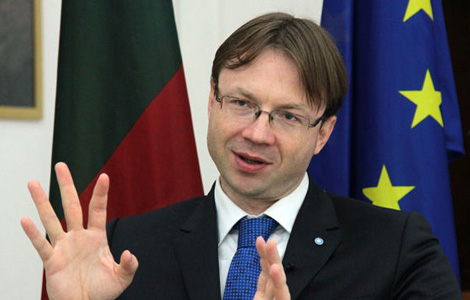Abe should seek reconciliation
Updated: 2013-07-17 09:16
By Cai Hong (China Daily)
|
|||||||||||
Japan should follow the example of Germany and face up to history instead of trying to hide it behind a cloak of ambiguity
Japanese people can be surprisingly vague when stating their opinions. This can be seen either as a practical way to handle difficult topics without offending the other person or a way of avoiding humiliation.
Questioned on his attitude toward Japan's past, Japanese Prime Minister Shinzo Abe is trying to be ambiguous by employing aimai, literally a doubled-edged approach.
He complains that part of Japan's history has been made a diplomatic issue, willfully ignoring the fact that Japan's militaristic past has become a diplomatic issue because Japan has made it an issue, and claims that Japan's historical baggage has been forced on it by neighboring countries.
While his predecessors, such as Yasuhiro Nakasone and even Junichiro Koizumi, acknowledged Japan's wartime excesses, and former Japanese Prime Minister Tomiichi Murayama apologized in a statement for Japan's wartime atrocities in 1995, Abe refuses to clarify his position on Japan's past aggression against its Asian neighbors and its colonization of the Korean Peninsula, claiming a definition of aggression has "yet to be established". He respects the spirit of the war dead who gave their lives for Japan, and feels no compunction about worshiping at the Yasukuni Shrine, which commemorates Japan's convicted war criminals among the war dead.
In October 1945, Tanzan Ishibashi, the second leader of the Liberal Democratic Party and prime minister from 1965 to 1966, made the visionary proposal to abolish the Yasukuni Shrine. He believed that the difficult international situation Japan was in after its defeat in its so-called Greater East Asia War had made it impossible to worship the war dead as heroes. He warned that worshiping there would cause Japan the ultimate humiliation and damage if it continued.
"Japanese politicians still do not understand the difficult international situation the country is in today," said Tetsuya Takahashi, professor of philosophy at the University of Tokyo.
As Richard von Weizscker, former president of the Federal Republic of Germany, put it, people need to know how they stand in relation to the past, in order not to be led astray in the present.
Related Stories
Abe's fault approach to China 2013-07-09 20:56
China urges Abe to face up to history 2013-07-03 21:16
Abe's 'values diplomacy' goes against the grain 2013-07-02 08:07
Japan highlights China as 'security threat' 2013-07-10 08:13
Abe must take action to improve China-Japan ties 2013-07-01 19:46
Today's Top News
'Missile equipment' found aboard DPRK ship
Merkel's rivals go on attack over US spying
Central govt sincere about HK universal suffrage
China signs co-op pact with Belarus
Gay marriage to be legal in UK
Egypt's interim govt takes oath
Li highlights economic restructuring
Philippines' accusation refuted
Hot Topics
Lunar probe , China growth forecasts, Emission rules get tougher, China seen through 'colored lens', International board,
Editor's Picks

|

|

|

|

|

|





